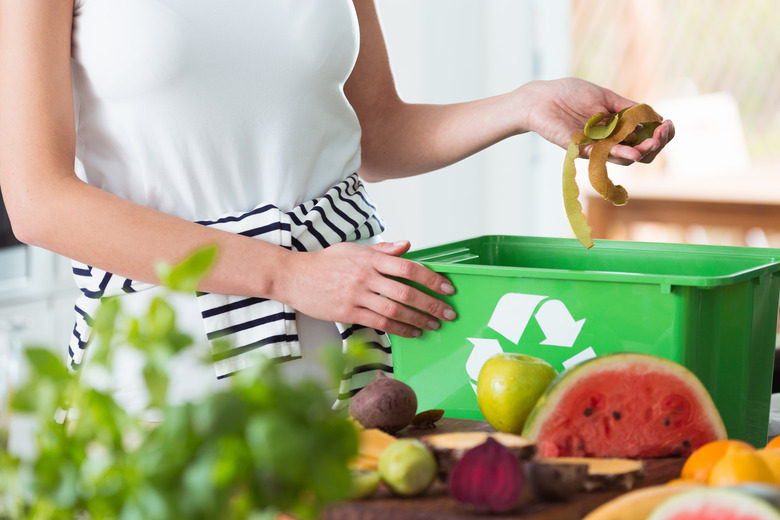How Can Recycling Help Prevent Pollution?
Recycling is a common-sense task. The Earth does it; once plants or animals die, their bodies eventually return to the Earth to become soil and compost that supports the next group of plants, trees and forests that grow. When you recycle, it helps reduce pollution by saving on the costs to manufacture new materials and by cutting back on the pollutants released into the air by factories.
TL;DR (Too Long; Didn't Read)
Recycling does more than just cut back on air and water pollution. It also helps to moderate the greenhouse gases that add to global warming, and it helps to conserve Earth's resources. Recycling keeps trash out of landfills and helps prevent the pollution that factories emit when using virgin materials to make new products.
The Government Does It
The
Government Does It
The Department of Energy maintains a successful recycling program. In 2016, the administrative offices of DOE recycled 230 tons of waste, 20,000 square yards of carpet, 400 pounds of batteries and 3,000 toner cartridges. Since the beginning of its recycling program in 1991, the DOE has recycled over 7,500 tons of waste. By recycling, the department also saved $13,800 alone in 2016 by not paying to have recycled trash hauled to a landfill site. The government also recycles corrugated cardboard, white office paper, newspapers, glass, plastic bottles and aluminum cans.
Benefits of Recycling
Benefits of
Recycling
Most people may not realize that recycling saves Earth's natural resources. By recycling plastic goods, for example, factories don't expend as much money to manufacture new plastic products from petroleum, saving on mining and extraction costs and preserving fossil fuels and other natural resources. Recycling cuts back on energy consumption. For example, by recycling plastic bottles alone, companies save up to 60 percent of the costs to make new bottles. If the whole world recycled aluminum twice as much as it already does, more than a million tons of pollutants would be kept out of the atmosphere.
Reduces Pollution
Reduces
Pollution
Bottom line, recycling reduces pollution. According to the University of Central Oklahoma, when manufacturers use recycled paper, they cut air pollution by 73 percent and water pollution by 35 percent. Recycled steel reduces 97 percent of the mining waste produced through manufacture of virgin resources, and cuts back 86 percent of air pollution and 76 percent on water pollution. Using recycled glass decreases mining wastes by 80 percent and air pollution by 20 percent.
Reduces Landfill Needs
Reduces
Landfill Needs
Landfills – local dumps – take up a lot of space, and they are noisy, smelly and ugly. About 80 percent of the material in landfills consist of solid waste, some of which could be recycled. If more people recycled, it could reduce about 50 percent of the volume of waste in landfills. Recycling also reduces the amount of litter on urban, suburban and rural roadways and reduces the costs of having to pay someone to pick up the trash.
References
Cite This Article
MLA
Brenner, Laurie. "How Can Recycling Help Prevent Pollution?" sciencing.com, https://www.sciencing.com/can-recycling-prevent-pollution-7455182/. 7 May 2018.
APA
Brenner, Laurie. (2018, May 7). How Can Recycling Help Prevent Pollution?. sciencing.com. Retrieved from https://www.sciencing.com/can-recycling-prevent-pollution-7455182/
Chicago
Brenner, Laurie. How Can Recycling Help Prevent Pollution? last modified March 24, 2022. https://www.sciencing.com/can-recycling-prevent-pollution-7455182/
